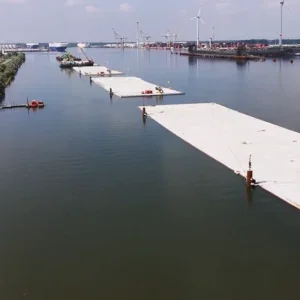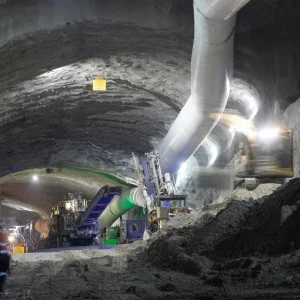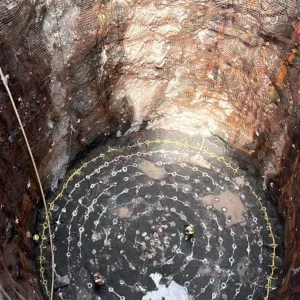To most, the expression “risk assessment” is associated with the likes of TBM selection or ground conditions, etc. It is therefore interesting to see that a recent audit into last year’s collapse of a short section of the Hanekleiv Tunnel, in Norway, has attached a significant degree of the blame on managerial aspects of the project’s set-up during its construction in the mid-90s.
At the time, the client, the Norwegian Public Roads Administration (NPRA), whom it must be said has an exemplary record, had just undergone a re-structuring that separated its construction department into two units and had them working together on the Hanekleiv Tunnel.
The recent audit raised four points of concern about NPRA and the operations of the two units at Hanekleiv. Worryingly, one of these was ‘a lack of communication’ that was deemed as a contributing factor to the subsequent collapse.
We all know that constructing a tunnel can be hard enough at the best of times. But for such a dramatic event to have occurred partly because communication was poor between two parties in one organisation should have been foreseeable and is more than regrettable.
There is another example this month, albeit less dramatic, that illustrates another possible breakdown in communications. In the article about Durban’s replacement service tunnel under the harbour, bored by South Africa’s first slurry TBM, we find that considerable problems were experienced with spalling of the dowel sockets on the segments because the dowels had a larger diameter than their inserts.
Although this is not an uncommon problem, it turned out that this was also experienced when the machine was used on its previous project in Hong Kong. It may have been useful to the Durban teams to know this from the outset? It’s hard to say how and why this didn’t happen, but needless to say, it caused undue and preventable headaches in an engineering discipline that will provide enough of its own.
Communication is a task we all learn from an early age, and certainly one we don’t need a degree in Civil Engineering to perfect. In an industry fraught with difficulty, getting the basics of communication right are as vital as choosing the right machinery, and should be treated so.
Tris Thomas
Tris Thomas







